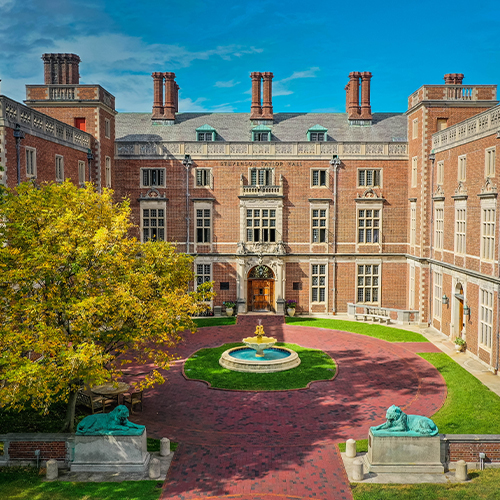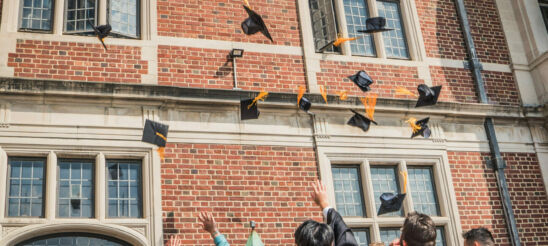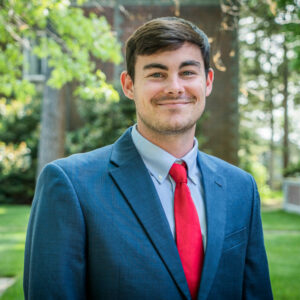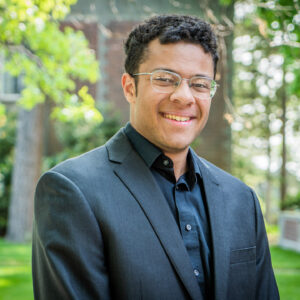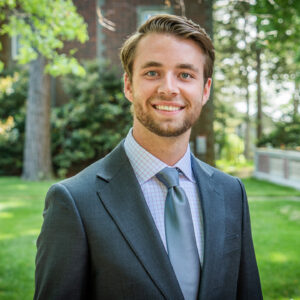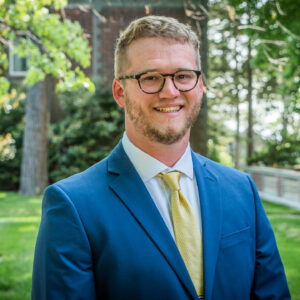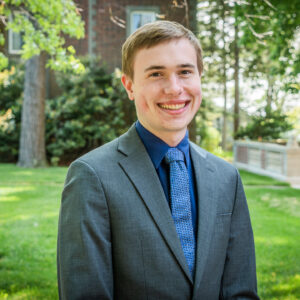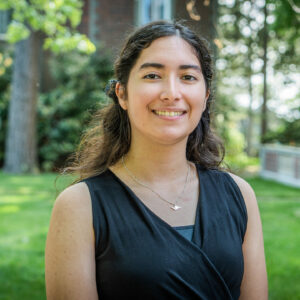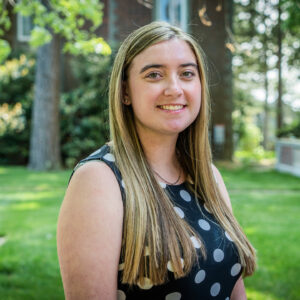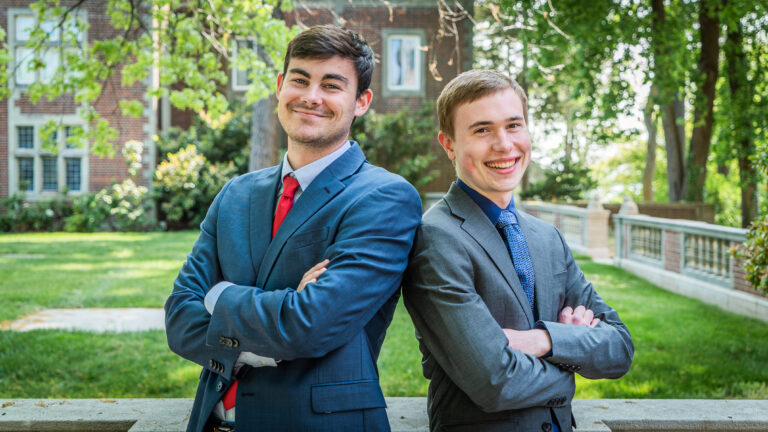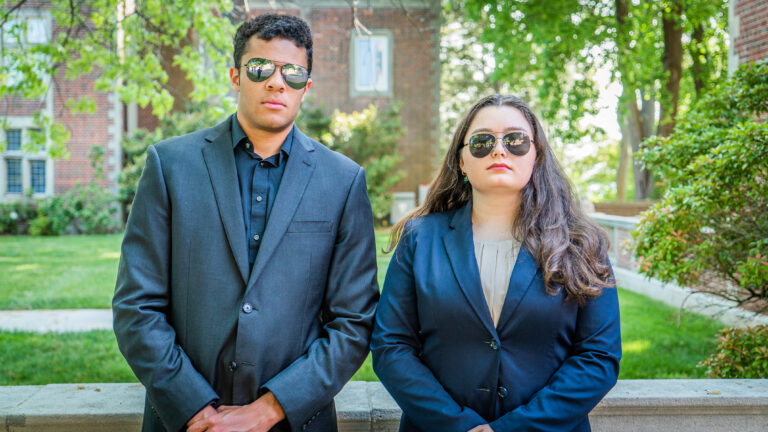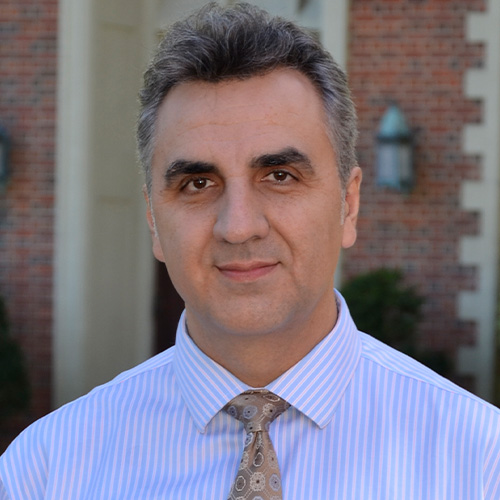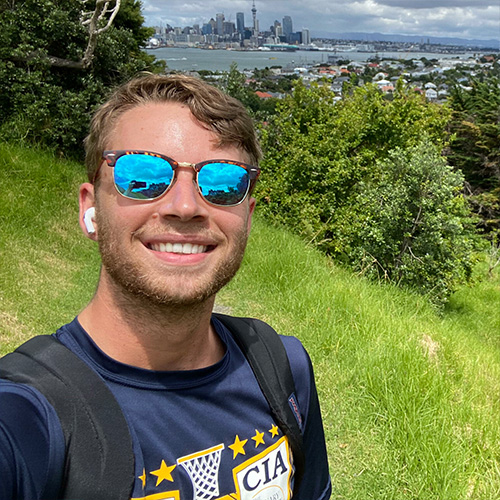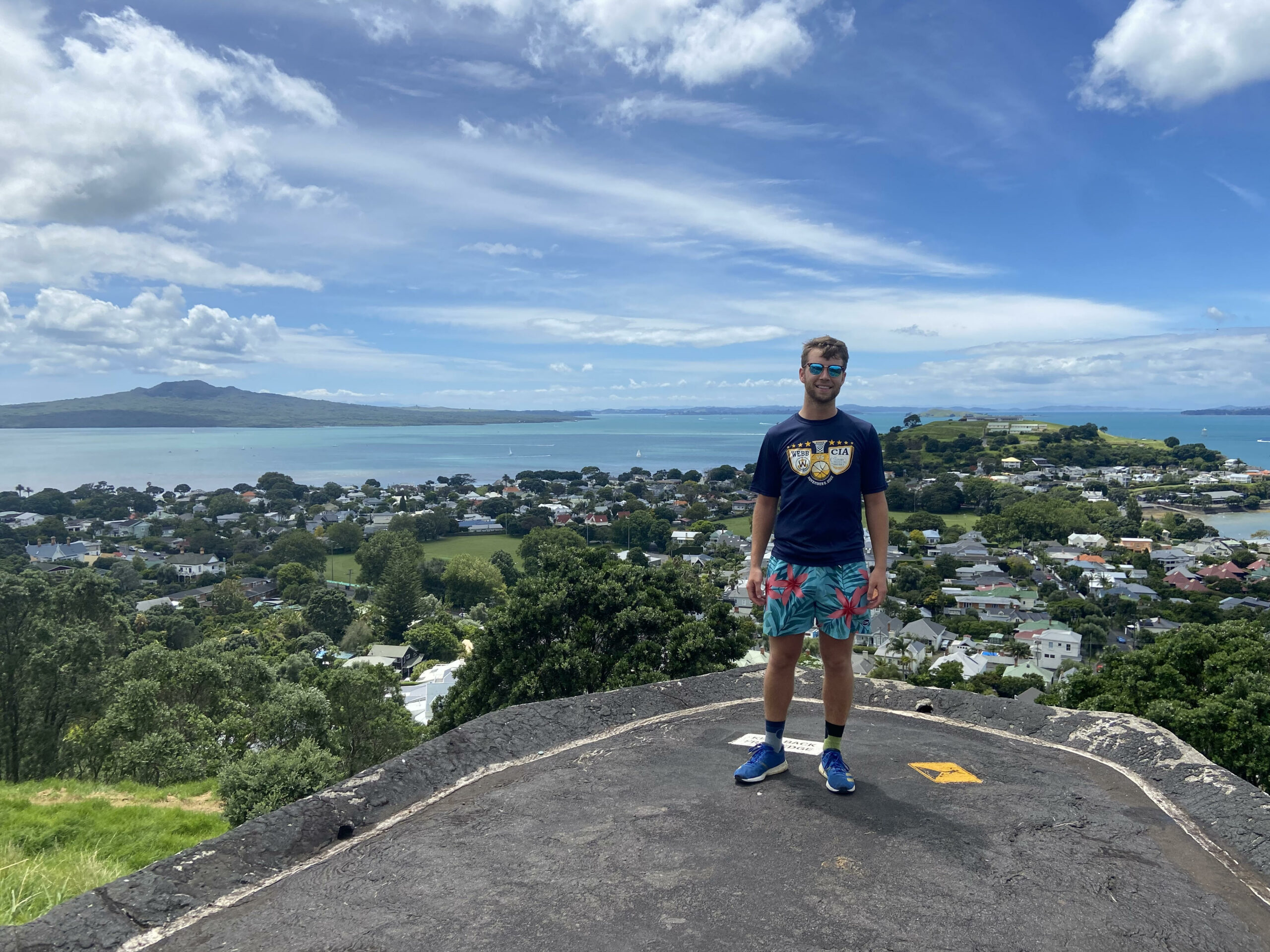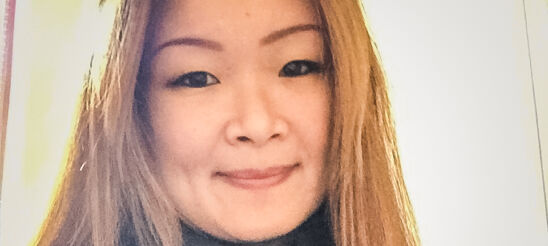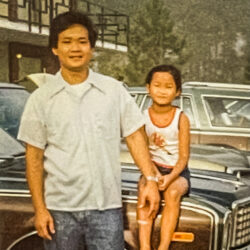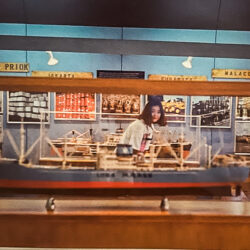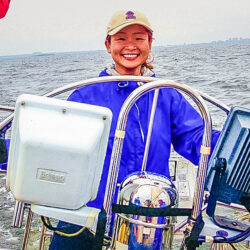Webb Responds to Supreme Court’s Decision on Affirmative Action
To the Webb community,
On June 29, the U.S. Supreme Court announced its decision on how colleges and universities may consider race in their admissions policies and practices.
The National Association of College Admissions Counseling (NACAC) has created an admissions/legal team to analyze the 237-page opinion and provide guidance in the coming weeks and months on compliance with the ruling. We will review our own policies and practices to ensure we are fully compliant.
Webb remains committed to an admission process that is merit-based and inclusive. We seek diversity amongst applicants who meet our high academic standards. The best and brightest applicants come from a diverse applicant pool. Webb has and continues to work to increase representation of all qualified individuals in its student body and is a far better place for it.
Our graduates enter industries that compete globally; navigating cultural differences is a vital skill, best developed in a diverse student body. The maritime industry continues to diversify, and we will support that transition. Our founder, William H. Webb, was a firm believer in the power of accessible education; we increasingly attract applicants who are first-generation college students, from a variety of backgrounds, hailing from families of limited means.
As we continue to explore this ongoing discussion, please do not hesitate to reach out to me and let us keep an open dialogue on how best to achieve our goals.
Regards,
Mark Martecchini
President
Commencement Awards for the Class of 2023
Professor Adrian Onas appointed as Member of the US National Committee for Theoretical and Applied Mechanics
We are thrilled to share that Professor Adrian S. Onas has been appointed a member of the US National Committee for Theoretical and Applied Mechanics (USNC/TAM) on behalf of the National Academy of Sciences (NAS), representing the Society of Naval Architects and Marine Engineers (SNAME). This is a great achievement of Professor Onas, the Webb community and SNAME. It reflects his exceptional knowledge and expertise in mechanics, coupled with his passion for teaching our students Naval Architecture, and an active involvement as Chair of the Hydrodynamics Committee within the SNAME Technical & Research (T&R) Program and other academic and research activities.
The USNC/TAM established in 1949, is a great hub for U.S. engineering, scientific and mathematical communities that share a passion for mechanics. The committee serves as a national forum for defining major issues in mechanics research, technology, and education – addressing concerns and inspiring appropriate actions. The USNC/TAM also represents the National Academy of Sciences (NAS) as the U.S. adhering organization to the International Union of Theoretical and Applied Mechanics (IUTAM) – one of the 40 international scientific unions and associations of the International Science Council (ISC).
The IUTAM was formed in 1946 to connect experts and organizations working on scientific projects in mechanics or related sciences both at a theoretical or experimental level. Moreover, the USNC/TAM represents the United States in national and international activities related to the broad science of mechanics, including related sciences, engineering, and mathematics. It serves as a focal point for charting future priorities in mechanics-related research, applications, and education.
This appointment also reflects our community and commitment to the high caliber of faculty members we have here at Webb and reinforces our reputation as a center of excellence in engineering.
Congratulations, Professor Onas!
Winter Work: Jonathan Allen ’23 – Webb Senior Ready to Conquer the World
Welcome to the exhilarating world of Webb Senior, Jonathan Allen, who is on the journey to international success, one adventure at a time- beginning with New Zealand. Jonathan is an ambitious go-getter who utilized his opportunity to intern globally through Webb’s Winter Work internship program.
With his eyes set on the prize – his career and freedom – to go where the journey takes him, he shares his experiences and lessons. Jonathan offers advice on how to secure an international internship as well as dares us to dream bigger.
Throughout it all, Jonathan remains grateful to Webb for pushing him to embark on an unforgettable journey that shaped his future.
Where are you working for the Winter Work term?
I am working this winter/summer in sunny Auckland, New Zealand. The company I am working for is called Marine Industrial Design (MID), a subsidiary of Babcock International, a multinational engineering solutions company based in the UK. Babcock provides defense and specialized technical expertise to several countries across the globe, including the Royal New Zealand Navy (RNZN), which is one of the main customers MID serves. I work at the Devonport Naval Base, across the bay from downtown Auckland. It has beautiful views of Auckland and the surrounding sprawling volcanic hills that dot the landscape.
Why are you interested in this company?
I was interested in working for MID for two main reasons. The first was MID is an established Naval Architecture/Marine Engineering firm. This being my senior year, I felt it was important to experience a traditional office job before I graduate and decide my future. I have been privileged to have unique work experiences my freshman and junior years, but this job closely mirrors the expertise I have learned at Webb. The second, and pretty obvious one, is that New Zealand in the summer is a huge draw. I love to travel, see the world, and would eventually like to live internationally. This two-month internship gives me an opportunity to try living independently in new surroundings, while also knowing if I don’t love it, I’m not stuck here. So far; however, I have loved being here.
How is the work environment?
The work environment has been fun, inclusive, and flexible. Gram Schweikert, Webb Class of 2002, is my manager and has made me feel at home while away from home. He even very kindly let me stay with him the first few days I was in New Zealand before my Airbnb house opened up. The other employees and interns I have met at MID have all been really nice and welcoming. I have not been stuck on a problem that someone hasn’t been able to happily help me with. The work schedule at MID is flexible too which has been a really nice thing. Employees are required to work from 9am to 3pm, but can make up their hours earlier or later to meet the 40 hour workweek as they see fit. Although I don’t plan on utilizing it, MID also is very flexible about working from home. This is a Babcock policy they call Agile, and it seems to be a very popular, person-oriented one.
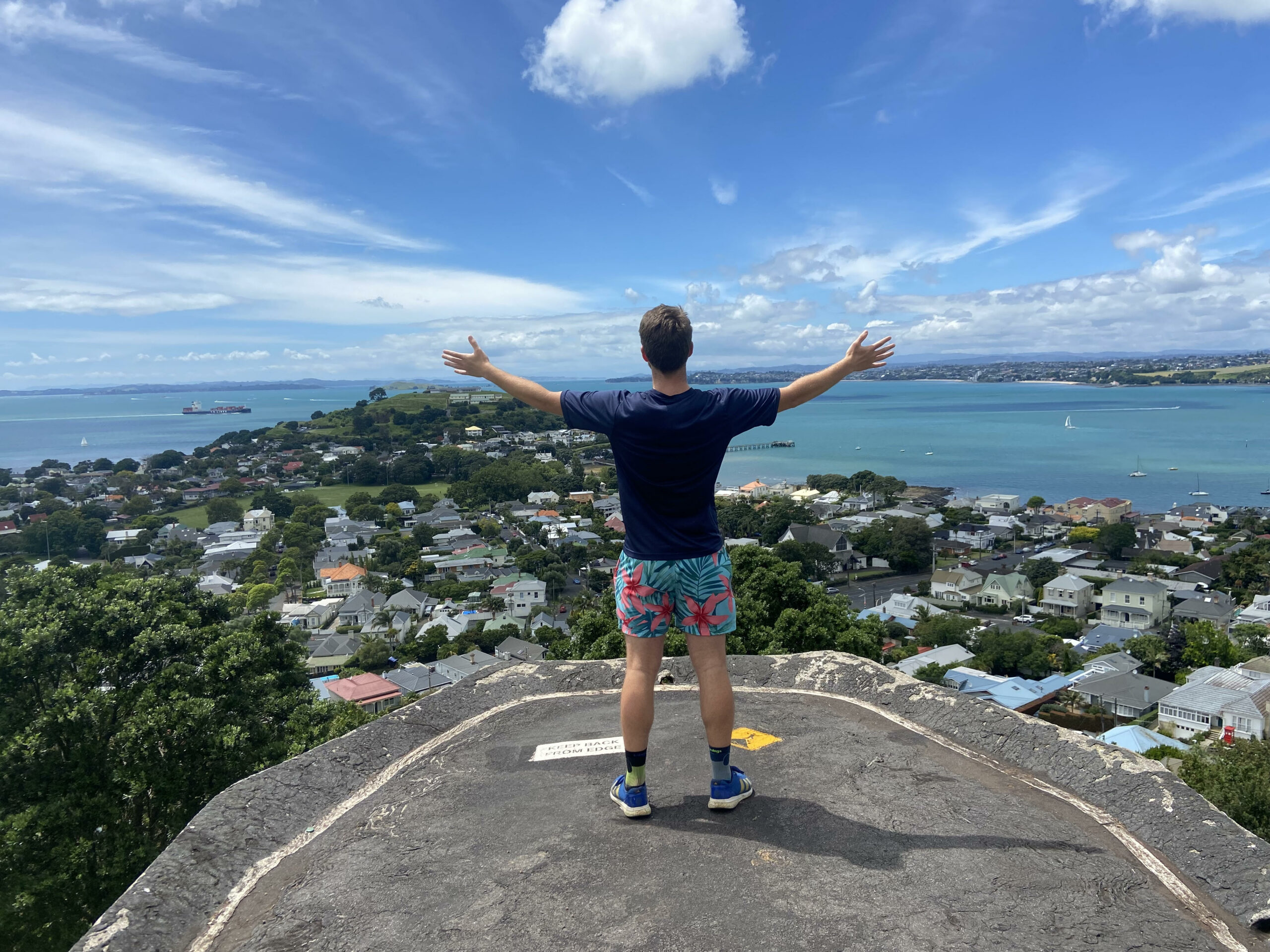
Embracing Adventure: Jonathan takes in the breathtaking view of New Zealand and believes that the world is really his oyster.
What skills are you learning at the company?
As I mentioned previously, MID is a Naval Architecture and Marine Engineering company. I get to utilize all of the skills I have acquired through the 11 NA/ME courses I’ve had so far. It feels surreal to say I have had 11 NA/ME courses. It seems like just yesterday I was in ME I. For example, two of the projects I am working on now use skills I’ve learned at Webb. While I cannot get into specifics, for one project I am using CAD software to find solutions on how to improve the stability of a class of vessels. In the other, I am using the strength and materials knowledge and skills to ensure that implementation of new equipment is safe to implement. Without Webb, I would be lost when trying to find solutions to these critical aspects of ship design.
Why are you the best candidate for this internship?
While I cannot claim that I am somehow “the best” or “better” than other candidates for this internship, I was the one who put in the hard work to make it happen. With the pandemic raging, finding an international internship, especially one on a carefully-guarded island nation like New Zealand, was very difficult. What I was able to do, and what I would encourage all Webbies seeking new, exciting, and extraordinary internships to do is utilize Webb’s amazing alumni network. I found this internship by perusing the Webb community portal. There you can find all Webb alumni, where they live, where they work, and if they are open to helping students. In my experience, Webbies are a friendly bunch and often go out of their way to help others, especially Webbies. That is what Gram Schweikert did for me. While MID usually has two interns a year from Australia/New Zealand, he was able to secure a third spot for me. I had to do the hard work of visa paperwork, security clearances, and travel logistics, but without a Webbie on the inside like Gram, it would have been nearly impossible to come here to Auckland. I would encourage Webbies to seek out these types of jobs as early as possible. It has been more than two years since I learned about MID and more than 14 months since I first contacted Gram asking about the possibility of me working for MID. Get your foot in the door early, follow up promptly, and you will find yourself with amazing opportunities. I sure did.
Where do you see yourself after this internship (or after graduation)?
After graduation, I plan on working, uh, somewhere haha. I am not at this point committed to any particular direction. I do not plan on living and working at the same place my entire life, and I plan on determining what I want to do with the next phase of my life when the time feels right. Mostly, I want to work somewhere that challenges me professionally, supports me financially, and excites me when I wake up in the morning. If I can find a job that does that, I think I’ll be alright.
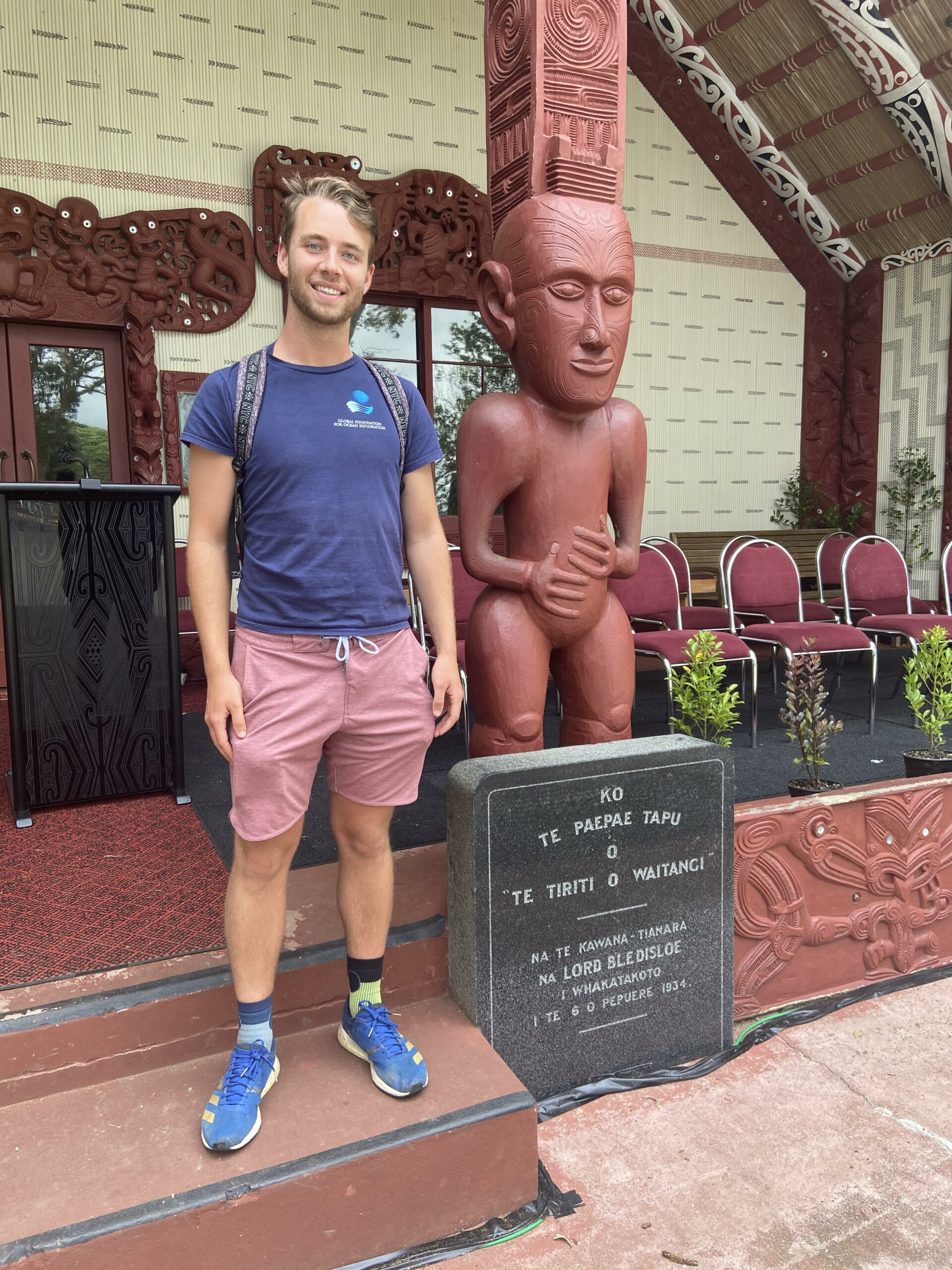
Standing Tall: Jonathan immerses himself in New Zealand’s culture and gives respect to its rich history
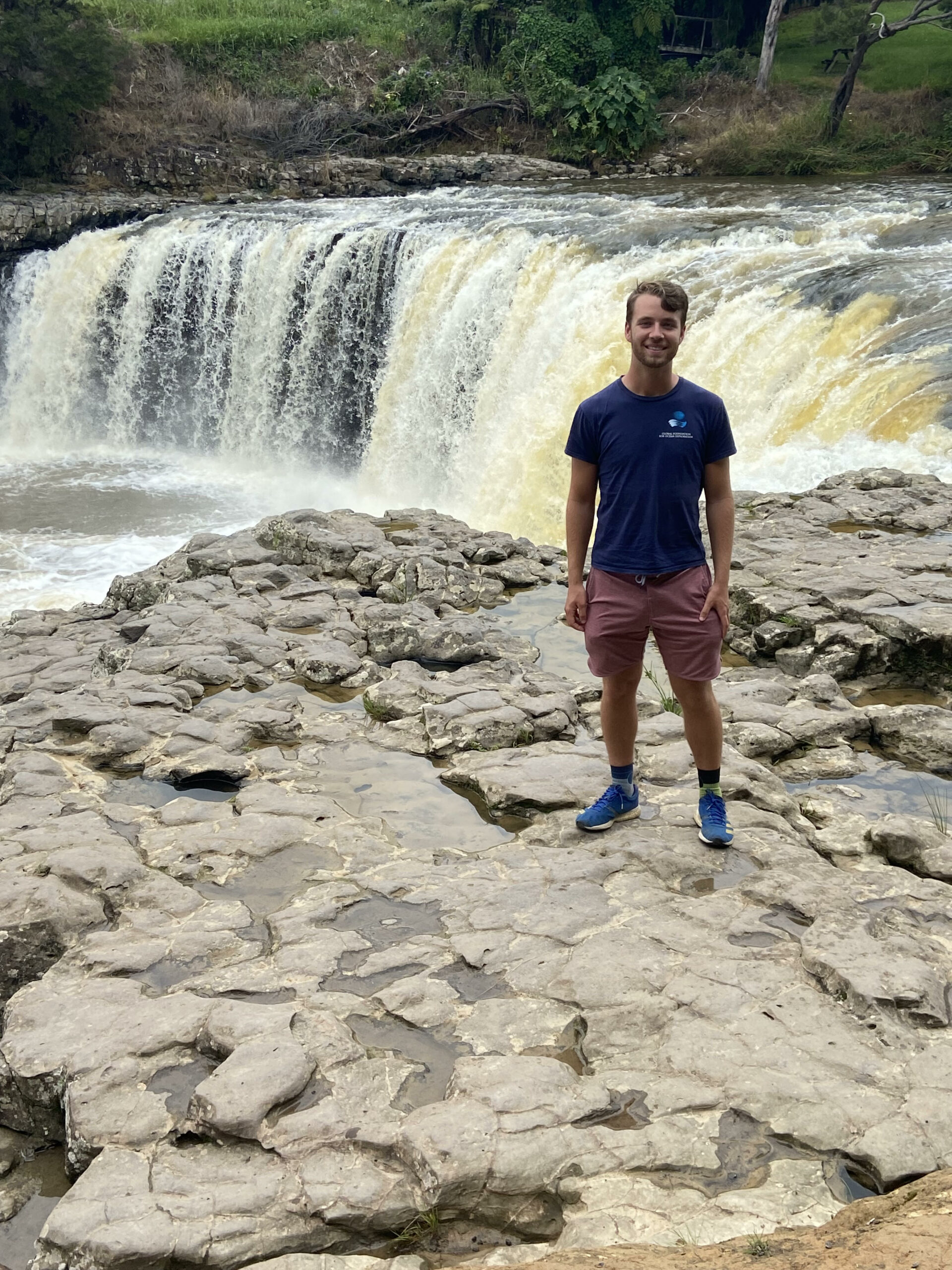
Nature’s Temptations: Jonathan admires the serene beauty of New Zealand’s waterfalls and environment yet resists the urge to take that plunge.
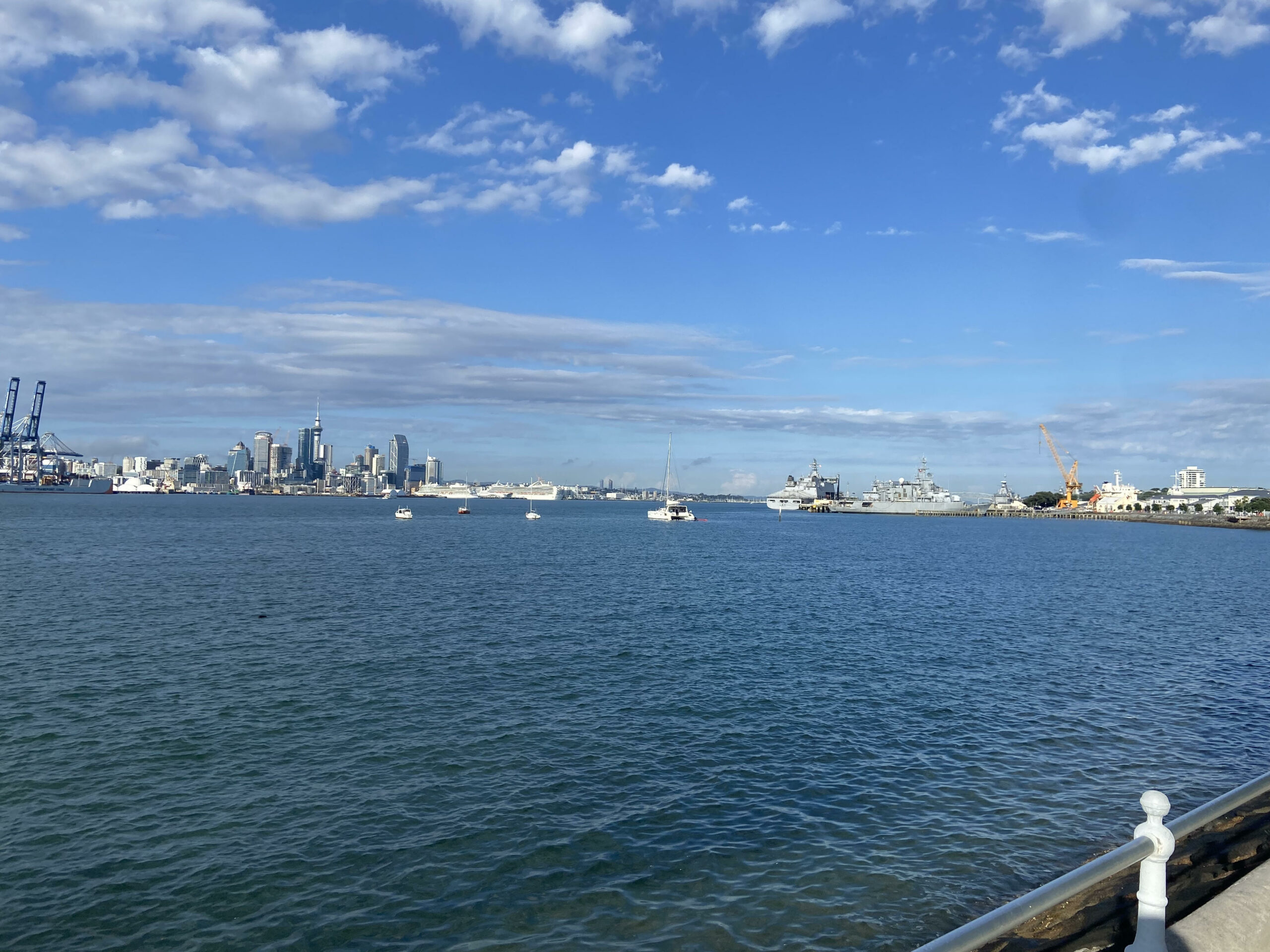
From New York to New Zealand: Webbies embrace the adventure of exploring the world while finding a home in a historic mansion in Glen Cove, New York.
WoW : Meet Our Women of Webb – Monique (Mo) Sinmao
We continue our profiles of Webb alumni by observing March as Women’s History Month and celebrating the achievements of WoW – the Women of Webb – and recognizing the barriers they have faced. Women have made significant contributions to the field of science, technology, engineering, and mathematics (STEM) throughout history despite facing many obstacles and discrimination. Their hard work and determination serve as a model for us all, no matter our gender.
The maritime industry today provides more opportunities to women than in the past, but that transition does not happen quickly. Our first author shows us that women have been breaking barriers in male-dominated fields for decades.
Meet Monique (Mo) Sinmao. Mo manages wealth for high-net-worth clients, and raises capital for STEM-heavy businesses. She transitioned from engineering to finance and found that these two sectors share many common themes. She recalled her time at Webb where she gained real-life, tough experiences that prepared her for navigating through crises in her future career and life.
Mo’s story offers invaluable advice. She reminds us that STEM, and life, require a mindset of applied problem-solving and the willingness to take risks. She emphasizes the importance of a mentor and the benefits of a support system.
What inspired you to pursue a career in STEM (Science, Technology, Engineering, and Math)?
We could have been stranded. Our new car broke down in North Carolina enroute to Disney World. Another driver behind us on the highway pulled up, fixed it, and sent us on our way, taking nothing in return. He was a mechanic and engineer for Chrysler and knew the exact design and production flaw. I think of STEM as applied problem-solving across categories, as shown by my family’s highway hero. After that, I immersed myself in how things work and not just how they turn on. I had four very different cars while at Webb, gas and diesel. My dad wanted to foster the attitude and capacity to fix anything. Then one day, while in the pit at Webb changing out a starter, two sets of professors’ legs walked by as they left the Diesel Lab discussing who they felt were natural engineers. Not one female student was mentioned. I sensed a lack of support. My heart could sink or inspire my STEM drive even more. This underdog chose the latter.
What did you plan to do with your degree from Webb?
My first goal was shallow and predictably local (Washington DC): find the most difficult engineering program and work for the military. After the graphic media coverage of damages to Prince William Sound following the Exxon Valdez oil spill (my senior year in high school), I took a broader interest in ship design. What are the specifications of a double hull to be sufficiently protective? What are the design and operational consequences?
And, profoundly, what is a “rock” or “grounding scenario” so that we can even define failure sequence and damage thresholds to withstand? After all, crash test dummies conjure common accident scenarios defined for autos.
It took Webb and then MIT to join ship structural design with operating environment modeling, using kinematic theory – solidly back to STEM.
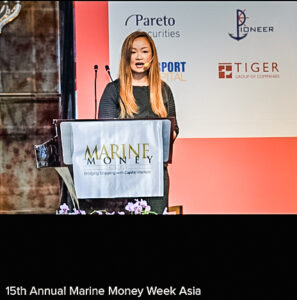
Bringing Tech to the High Seas: Mo shares her expertise and wit as a speaker at Marine Money Asia – inspiring the industry to embrace the latest technological advances.
Do you think Webb prepared you well for real-life experiences?
No college prepares you for the range of “black swans” (unexpected experiences) like Webb. I chose Webb over MIT undergrad for being the most difficult engineering program considering the intense curriculum, grueling work requirements, resource density per student, Honor Code, and demanding immersive campus culture.
My Sea Term on a NASSCO-built oil tanker was a major milestone experience. I bungeed into a cargo tank to inspect structural damage after a grounding event. We flipped from the idyllic East Coast/St. Croix route to a winter North Atlantic crossing when the Iraqi military suddenly set fire to oil wells at the onset of the Gulf War in January 1991. We hauled equipment lines in gumby suits (green neoprene exposure suits with two fingers per hand). I watched 40-50’ waves swallow the entire bow of our tanker on bridge watch in the Bay of Biscay (aka Graveyard of Seafarers).
Despite the stormy conditions, Jeanne (a classmate) and I managed to draft our ship schematics. Our superstitious Captain blamed the women on board for the storms and gave me a poor review; I got an A+ from Professor Rowen.
Fast forward to my future career on Wall Street: boiler rooms and financial crises – no matter how “great” – were just another Sea Term to navigate through.
You also transitioned from engineering to finance, but still in the STEM field. What made you change course?
I have transitioned titles and fields but what I do at the core has not changed. Many seemingly distinct careers share the ethos of core engineering such as systems analysis, risk management, and prediction. Setting aside degree labels, I began to understand the essence of what I was becoming good at is decision-oriented analysis with incomplete inputs, dynamic systems, and risk-adjusted outcomes.
Finance and engineering share common toolkits like coding, regression analysis, feasibility analysis, and quantitative modeling. Engineering practice, where we regularly break things to understand limits, has been a powerful tool in finance where practitioners often rely on equations to measure risks without first dissecting the equations’ limits.
Most people would say the 2007–2008 financial crisis, or Global Financial Crisis, was caused by toxic mortgage-backed securities blowing up and taking down the global financial system. In reality, only the thinnest slice of mortgages blew up. What happened was the risk models (used to price mortgages) first underpriced risk and then grossly overpriced all classes of risks, due to how the models factored in contagion. Those who understood the fragility of the equations, versus real risk, made 8-10x returns by buying back the seemingly deeply impaired securities.
What do you find most rewarding about your work?
Today I manage wealth for high-net-worth clients. Like Webb’s endowment, which is managed to provide long-term funding for the school and its students, I manage complex return and liquidity needs sustained over generations of family wealth. I previously managed money for institutions in a range of roles and investment styles. Managing private wealth is more challenging, and also more rewarding, due to the human element.
By steering clear of Wall Street institutional roles, I can now engage in building and raising capital for startups without conflict of interest. I am at heart an engineer, a builder if you will – previously building teams with behemoth companies and now creating the concept and teams from inception. In this role, I have gravitated to STEM-heavy businesses that touch financial engineering, risk management, blockchain, sustainability, cryptographic securities, and regulation. The work is never done at startup/emerging companies, and it is rewarding working with high caliber individuals with a kaleidoscope of skills, with innovation in their DNA. Occasionally, the work revisits maritime (and Webbies) which is a bonus for me.
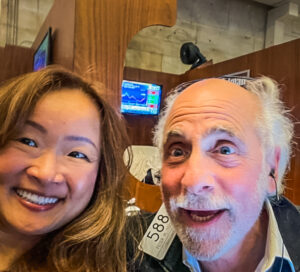
Capturing the Moment: Mo meets Wall Street’s legendary trader, Peter Michael Tuchman, capturing a moment as she pursues her own success in the world of finance.
Have you had any mentors or role models who influenced your career?
Three people strongly influenced my career.
When I was 12, one teacher nonchalantly suggested I take a test when I returned from vacation. I scored well, got a certificate, and visited my first college. It turns out this was an SAT test. I was nowhere ready for college, but her challenging advice allowed me to get into Thomas Jefferson High School for Science & Technology, which prepared me well for the pressures of college.
After Webb and MIT, I set my sights on business school at Georgetown where my dean, professors, and classmates all had discouraging advice regarding a naval architect’s prospects on Wall Street. My capstone project advisor, Christine Brennan at Oxford University’s summer program, said you’re really good at this so stick with it. Turn by turn, I steered my skills into a coveted corner of the job market where only 2% women land hedge fund portfolio manager seats. Years later, one Georgetown professor saw my progress on LinkedIn and wrote that my experience helped him revisit how he works with future students.
Finally, my first job on Wall Street was at Lehman Brothers. My first boss, Chip Dickson, remains a friend 23 years later. He took a risk on my engineering background, allowing me to analyze the most complex financial institutions in the world. Compared to most goods and services companies, the financial engineering in these companies starts at the deepest end of the Ocean, from zero. He warned me that once I could read financial statements and understand the global financial system, I would never see the world the same way again. He was right.
What do you think can be done to encourage more girls and young women to pursue careers in STEM?
Foster interest in asking questions, try things out, dialog: all are important. One good thing leads to another. Those people who took risks on me motivated me to take risks for myself. Taking risks is essential to developing skills and focusing your time on building those skills. Risk-taking and feedback are an on-going iterative process.
Providing nonlinear perspectives can be illuminating. STEM does not crowd out or exist apart from other interests. Before STEM, I found my way first to creative writing, literature, art, and performing arts. STEM switched the light on for other dimensions of these other interests. In poetry and music, there is math. In classical and Hawaiian dance, the instruments, sets, and costumes involve design, engineering, and technology.
What advice do you have for Webb students on life after graduation?
Make thoughtful and honest decisions for yourself. For success and happiness, aim for the intersection between what you love doing, what you are committed to becoming excellent at, and the kinds of people you want to be around. Even when way off course, one of those three will lift you.
Own your path. The things that stand between you and your goals won’t be unique to Webb. Don’t depend on others – family, faculty, and friends – to remove roadblocks for you; practice coming up with solutions and invite their feedback to find your path around obstacles, work your way to a stronger position, and fix the things you care about.
Your own validation is powerful. People won’t always understand your strengths and weaknesses along the way. Sometimes you have to cheer yourself on until your results are fully baked for others to see.
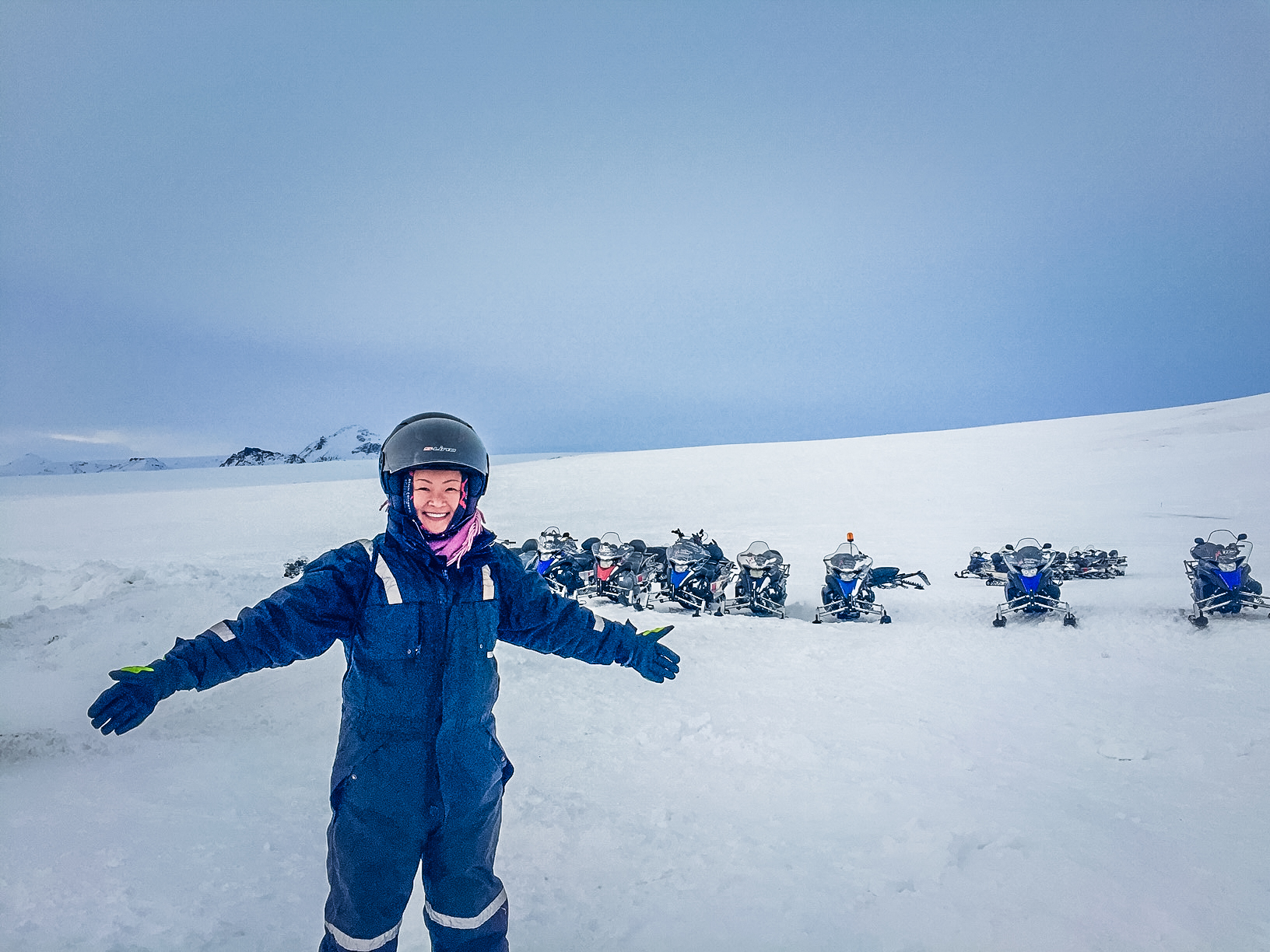
Adventuring the Great Outdoors: Mo braves the element on a glacier, posing for a photo with a snow automobile in the background.

Riding in Style: Mo shows off her playful side as she takes a ride on a motorcycle with a carrier looking effortlessly cool.
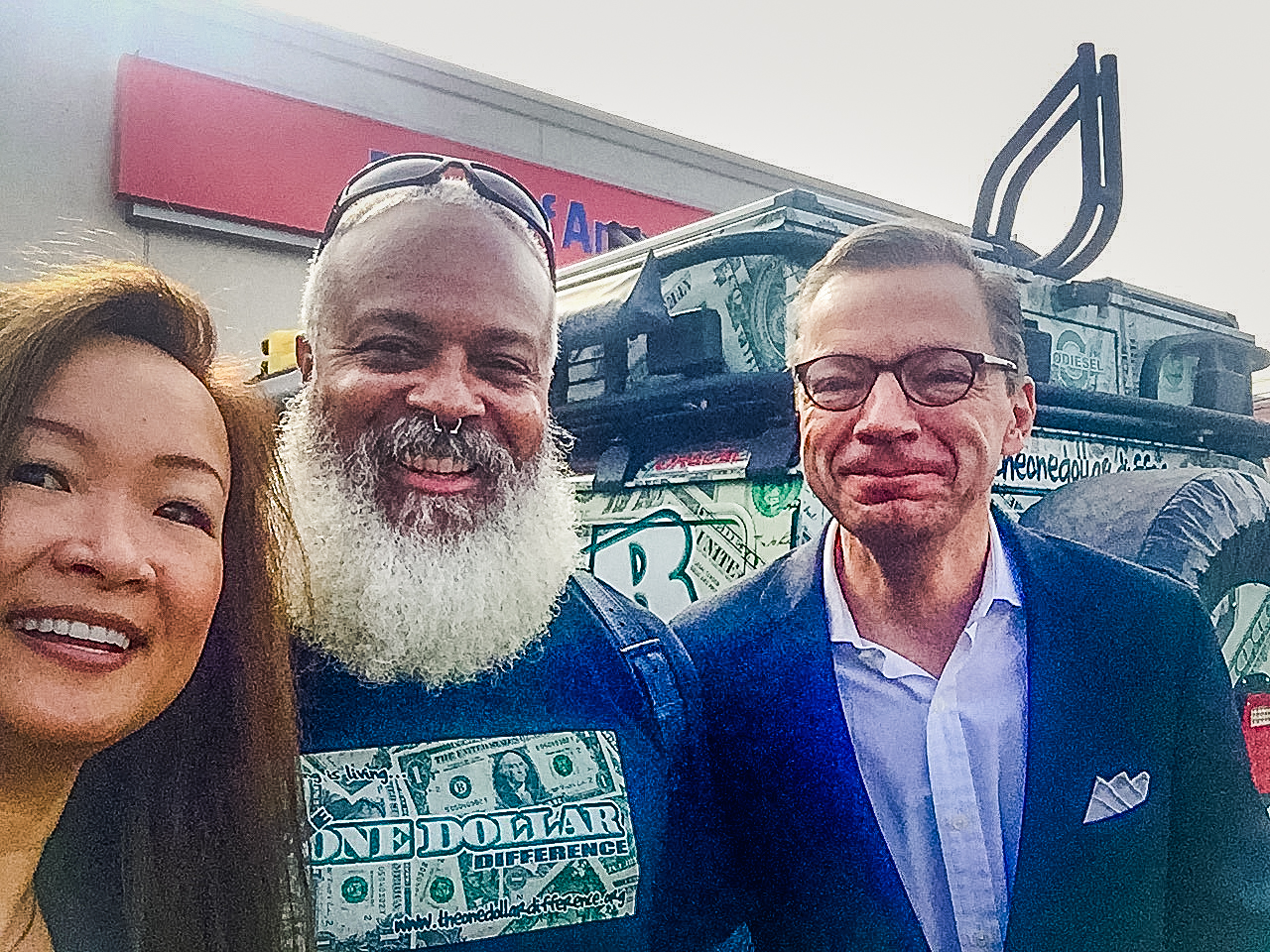
In the Heart of the Tech Industry: Mo joins the CFO and CRO of a startup as they work to raise capital
and bring their cutting edge ideas to life.
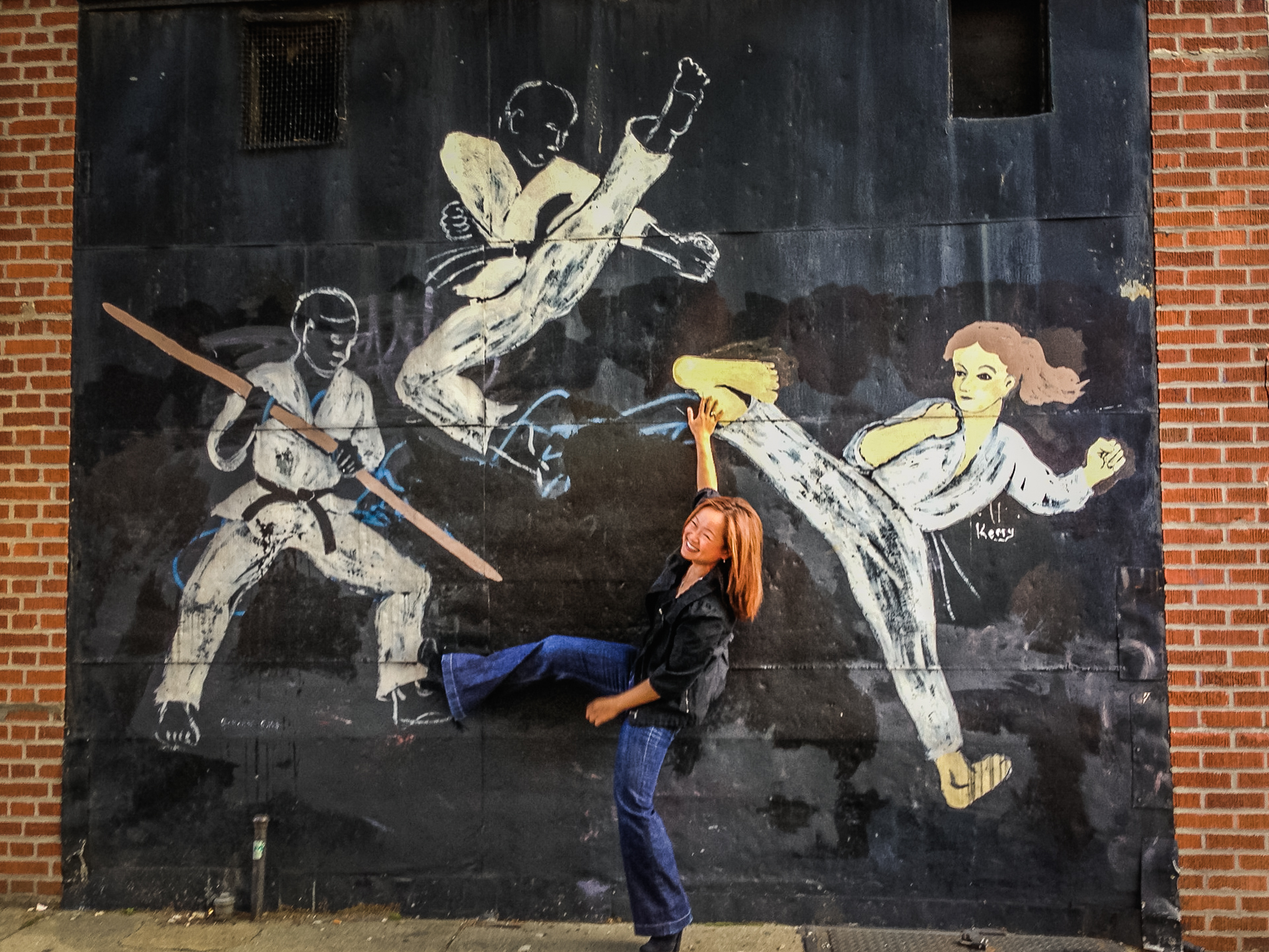
Martial Arts and a Swift Kick: Mo channels the energy of the martial arts students in the painting behind
her.

